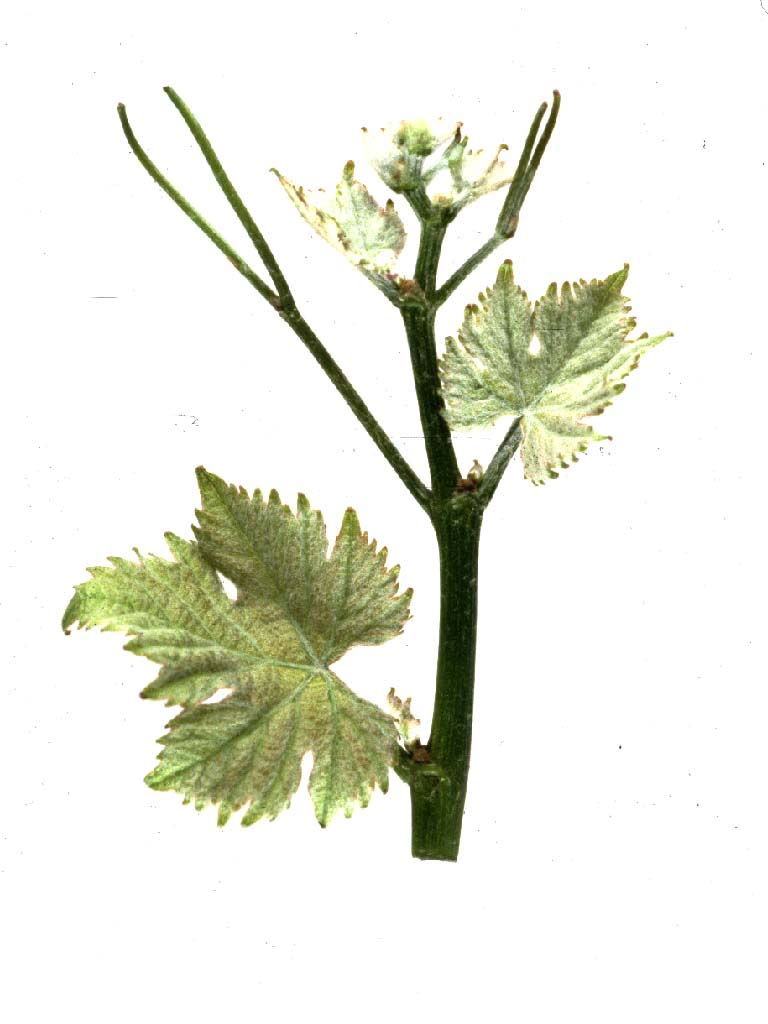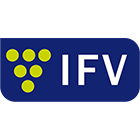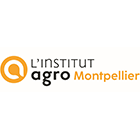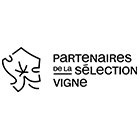Sauvignon
B
Wine grape variety.
The geographical origin of the variety is specified or, if this is not possible, the area in which it is traditionally cultivated. The genetic origin of the variety is also indicated whenever it is known from hybridiser data or from genetic analyses published or obtained by the teams at INRAE in Montpellier (UMR AGAP) and Vassal-Montpellier Grapevine Biological Resources Centre (CRB-Vigne).
The center of France or the South west of France are the 2 possible origins of this variety. Based on published genetic analyses, Sauvignon would be closely related to Savagnin.
This information indicates the normal and statutory use for the grapes.
Wine grape variety.
Name under which the variety is officially registered in the catalogue of grapevine varieties in France and under which it may be propagated and disseminated.
Sauvignon
Recognised alternative names that may be used to identify the propagation material of the variety in France or in other member countries of the European Union.
In the European Union, Sauvignon is officially called by other names: Sauvignon blanc (Austria, Germany, Hungary, Malta, Netherlands, Spain) and Zeleni sauvignon (Slovenia). These synonyms are officially recognized in France regarding plant propagation material.
This information indicates on which list the variety is registered (A or B), whether it is classified for wine grapes, and in which member countries of the European Union the variety is also officially registered (for more information, see the "Legislation" menu.
In France, Sauvignon is officially listed in the "Catalogue of vine varieties" on the A list and classified. This variety is also listed in the catalogues of other Member States of the European Union: Austria, Bulgaria, Cyprus, Czech Republic, Germany, Hungary, Greece, Italy, Malta, Netherlands, Portugal, Romania, Slovakia, Slovenia and Spain.
Evolution of cultivated areas in France
The figures provided are taken from vineyard land registers (IVCC, ONIVIT, ONIVINS), general agricultural censuses (SCEES-INSEE) and the current computerised vineyard register (DGDDI, FAM).
Regional vine planting data is available on the following site: https://visionet.franceagrimer.fr/Pages/DonneesInteractivesDocs.aspx?sousmenu=observatoire%20de%20la%20viticulture.
The figures provided are taken from vineyard land registers (IVCC, ONIVIT, ONIVINS), general agricultural censuses (SCEES-INSEE) and the current computerised vineyard register (DGDDI, FAM). Regional vine planting data is available on the following site: https://visionet.franceagrimer.fr/Pages/DonneesInteractivesDocs.aspx?sousmenu=observatoire%20de%20la%20viticulture.
Year |
ha |
|
|---|---|---|
|
1958 |
5508 |
|
|
1968 |
8867 |
|
|
1979 |
7028 |
|
|
1988 |
12026 |
|
|
1998 |
19974 |
|
|
2008 |
24473 |
|
|
2018 |
30955 |
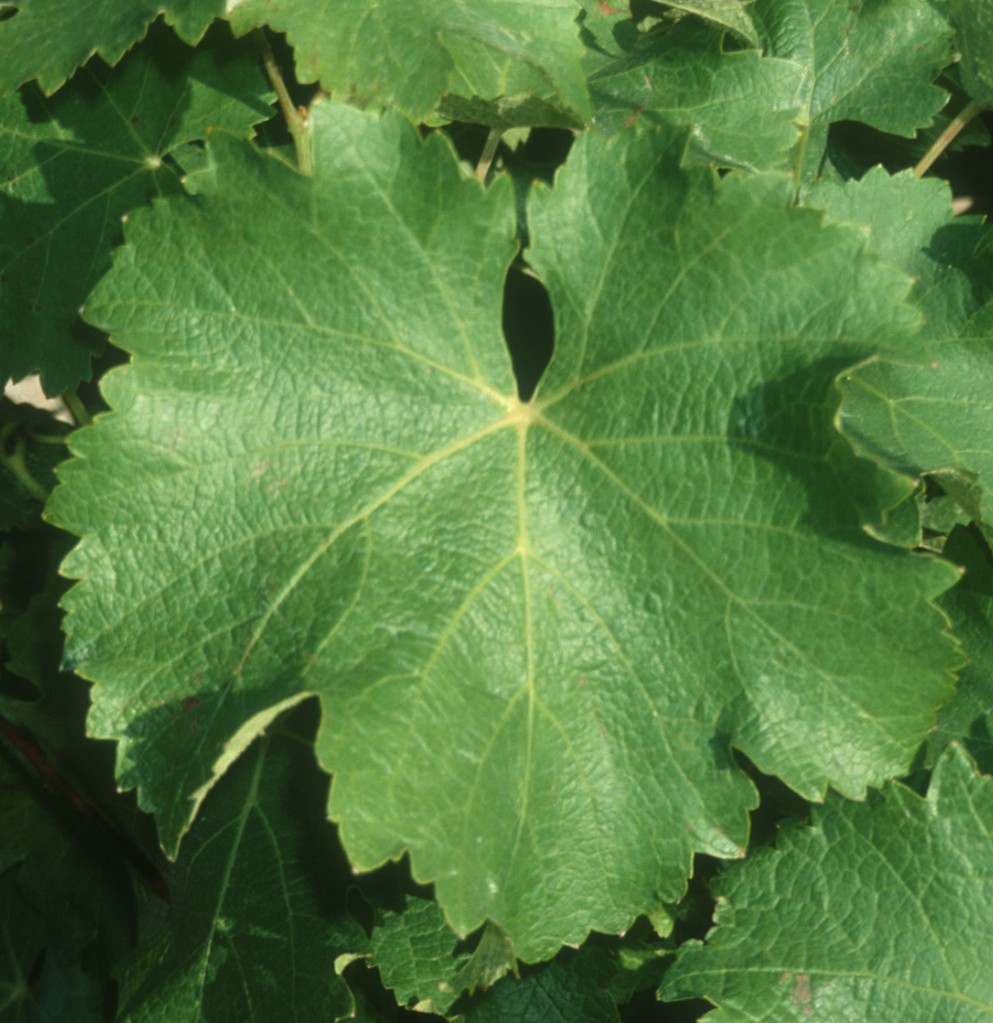
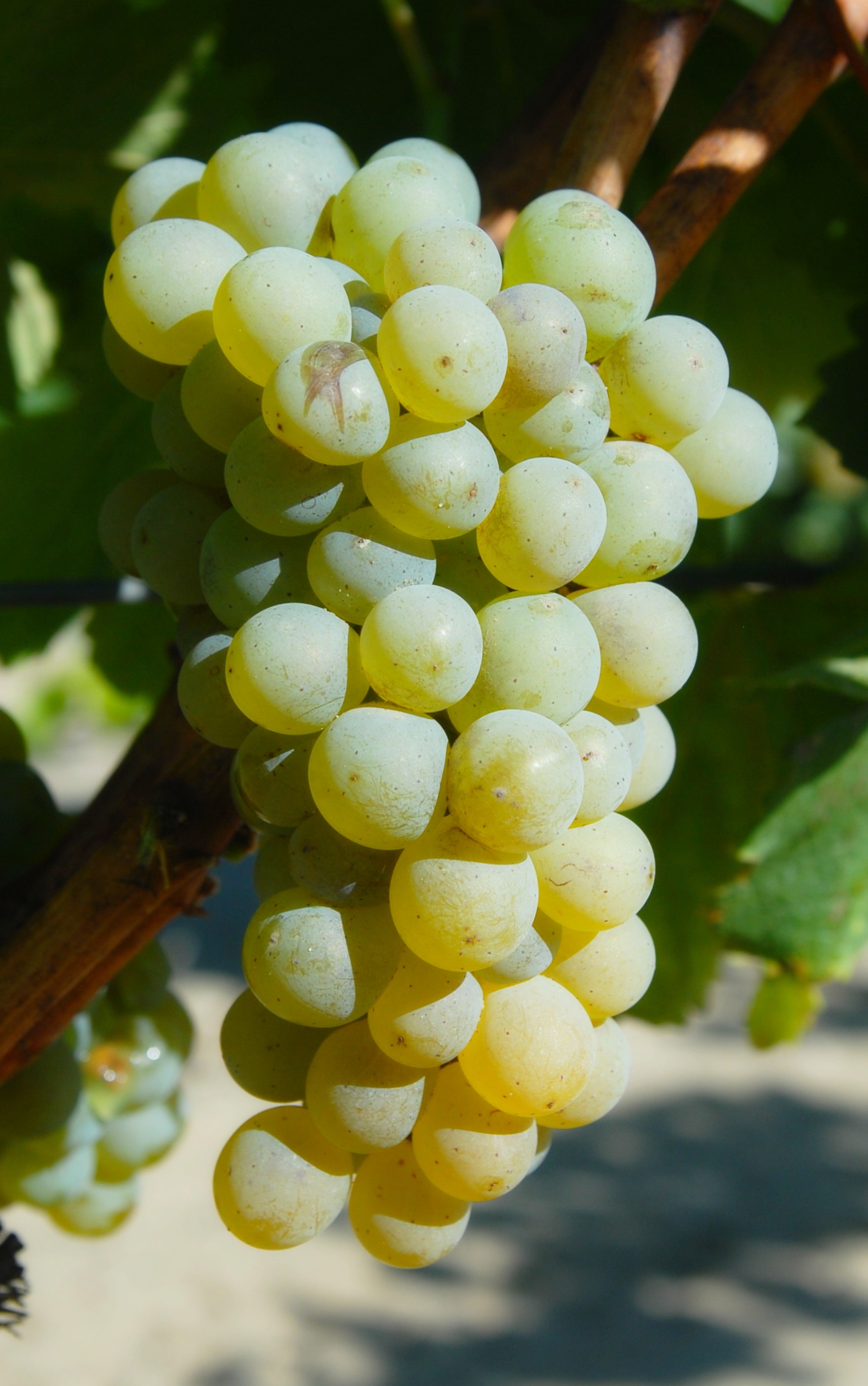
Only the principal ampelographic elements enabling the varieties to be characterised and identified are provided. They are presented according to the descriptor code recognised by the International Organisation of Vine and Wine (OIV), the International Union for the Protection of New Varieties of Plants (UPOV), the Community Plant Variety Office (OCVV) and Bioversity International (for more information, see the "Ampelographic glossary" menu). The photographs of leaves and grapes were taken in natural conditions, on the vine, in very similar situations in terms of growing conditions (sandy soil, Mediterranean coast): - Domaine de l'Espiguette (IFV), Le Grau du Roi (Gard), - Domaine de Vassal (INRAE), Marseillan (Hérault), - La Gaillarde Campus (Institut Agro | Montpellier SupAgro), Montpellier (Hérault). Only a few photographs, including the tips of bunches, were taken in other conditions.
- the tip of the young shoot with a very high density of prostrate hairs,
- the young leaves that are yellow or yellow with bronze spots,
- the shoots with green internodes,
- the small to medium circular adult leaves, with five lobes, a slightly open to open petiole sinus, medium teeth with convex sides, no anthocyanin coloration of veins, a twisted, blistered leaf blade, curly on the edges, and on the lower side of the leaves, a low density of erect hairs and a low to medium density of prostrate hairs,
- the ellipsoid berries.
Genetic profile
The genetic profile of the variety is provided for the 9 microsatellite markers (or SSR markers) selected under the European programme GrapeGen06 (http://www.eu-vitis.de/index.php) and by the OIV. The absolute size values of the alleles may vary slightly from one laboratory to another, but the relative differences between the two alleles of one single microsatellite are constant. The genetic analyses were conducted by the INRAE Montpellier team (UMR AGAP) and the IFV’s Plant Material Centre.
| Microsatellite | VVS2 | VVMD5 | VVMD7 | VVMD27 | VRZAG62 | VRZAG79 | VVMD25 | VVMD28 | VVMD32 |
|---|---|---|---|---|---|---|---|---|---|
|
Allele 1 |
131 |
225 |
239 |
172 |
188 |
246 |
240 |
233 |
239 |
|
Allele 2 |
149 |
229 |
257 |
186 |
194 |
248 |
248 |
235 |
255 |
The data on suitability are the result of field observations or, if none are available, of bibliography mining and the study of bibliographic references.
Sauvignon is a very vigorous variety and has a tendency to produce a lot of vegetation. This vigor, which can be very intense the first years, needs to be managed by planting in moderately fertile terroirs, by using weak rootstock and also by using adapted pruning techniques. Along with careful trellising and adapted training systems, finding a favorable micro-climate for the grape clusters is necessary.
These remarks are also the result of field observations or, if none are available, of bibliography mining and study of bibliographic references.
Sauvignon is very susceptible to grey rot (compact bunches) and wood diseases and sensitive to powdery mildew. It is however not very sensitive to downy mildew.
The growth stages indicated are the result of obsrvations made at the Domaine de Vassal Estate where the set of these varieties form a collection. The results are indicated compared to the Chasselas vine variety as a reference in order to make comparisons between years and different sites. As such, for information purposes, the dates for the Chasselas B growth stage at Domaine de Vassal are as follows: - Bud burst, 21 March (average over 50 years) - Grape maturity, 14 August (average over 50 years)
Bud burst: 7 days after Chasselas.
Grape maturity: mid-season, 2 weeks and a half after Chasselas.
The size of grape clusters and berries indicated are based on the following scales: - Wine grape varieties Size : Very small Bunch (g) : ≤ 100 Berry (g) : 1 - Table grape varieties Bunch (g) : 150 Berry (g) : 2 - Wine grape varieties Size : Small Bunch (g) : 100 - 200 Berry (g) : 1,5 - 2 - Table grape varieties Bunch (g) : 150 - 250 Berry (g) : 2 - 3,5 - Wine grape varieties Size : Moderate Bunch (g) : 200 - 250 Berry (g) : 2 - 2,5 - Table grape varieties Bunch (g) : 250 - 400 Berry (g) : 3,5 - 5,5 - Wine grape varieties Size : Large Bunch (g) : 250 - 400 Berry (g) : 2,5 - 3,5 - Table grape varieties Bunch (g) : 400 - 700 Berry (g) : 5,5 - 8 - Wine grape varieties Size : Very large Bunch (g) : 400 Berry (g) : 3,5 - Table grape varieties Bunch (g) : 700 Berry (g) : 8 Remarks concerning the characteristics of the wines are generally based on tastings organised by juries of professionals.
The grape clusters and berries are small in size. Sauvignon can produce very elegant dry white wines: very fine, balanced and typical. The bunches and berries are small. Sauvignon produces elegant, fine, balances and typical dry white wines. Its varietal aromas, especially present in the wine during the first years, are quite specific and can present nuances (broom flowers, blackcurrant, boxwood...) depending on the terroir, the vintage and growing conditions. After late harvests or with noble rot, this variety can be used to produce great liqueur wines.
In this section, the list of certified clones is given. Information on clone conservatories is also provided.
The eighteen certified Sauvignon clones carry the numbers 107, 108, 159, 160, 161, 240, 241, 242, 297, 376, 377, 378, 379, 530, 531, 619, 905 and 906. Three conservatories with a total of approximately 400 clones were planted in the Bordeaux region and in the Loire valley in 1993, 1994 and 2001.
Bibliography
- Catalogue des variétés et clones de vigne cultivés en France. Collectif, 2007, Ed. IFV, Le Grau-du-Roi, France.
- Documentary collections of the Centre de Ressources Biologiques de la Vigne de Vassal-Montpellier, INRAE - Institut Agro | Montpellier, Marseillan, France.
- Dictionnaire encyclopédique des cépages et de leurs synonymes. P. Galet, 2015, Ed. Libre&Solidaire, France.
- Traité général de viticulture, Ampélographie. P. Viala and V. Vermorel, 1901-1909, Ed. Masson, Paris, France.
Description of clones approved in France
In this section, the list of certified clones is given. Information on clone conservatories is also provided.
In this section, the list of certified clones is given. Information on clone conservatories is also provided.
-
Clone number
-
Brand
-
Origin
Region, department or winegrowing region in which the “clone mother plant” was identified and selected.
-
Selection
Body or bodies which selected the clone. In France, clonal selection is the responsibility of the selection organisations (themselves accredited by the ministry in charge of agriculture), usually in close collaboration with a technical partner working in a winegrowing region. For clones certified after 1999, the name of the partner or partners who took part in the selection work is also included. (NB: CA = Chamber of Agriculture).
-
Year of approval
Year in which the clone was certified by the FranceAgriMer board further to a proposal by the Vine section of the CTPS (Permanent Technical Committee for Plant Selection).
-
Agronomic Reference
Region, department or winegrowing region in which the agronomic and technological data were collected.
-
Surface in multiplication
Surface area in hectares (ha) of stock nurseries used for propagation for the year under consideration (in brackets), which allows the available potential to be evaluated. Clones with a surface area of between 0.01 and 0.10 ha are shown as <0.10 ha. Clones of limited dissemination, but for which we have technical data, are shown as <0.01 ha. Other clones are given as “low-dissemination clone”, which means that the clone has been certified only recently or has not been propagated. In both cases, only the initial material is planted in the selection centres.
-
 B
B -
107
-

-
Cher
-
INRA
-
1971
-
Centre;
Loire-Valley;
Rhône-Valley -
0.84 ha
-
Agronomic Data
-
Fertility high
-
Production level high
-
Cluster weight high
-
Vigor high
-
Berry size medium
-
Susceptibility to Botrytis medium
-
Technological Data
-
Sugar richness medium
-
Total acidity medium
-
Aromatic intensity medium
-
Oenological skills representative wines of the variety
-
 B
B -
108
-

-
Gironde
-
INRA
-
1971
-
Bordelais;
Centre;
Languedoc;
Loire-Valley;
Rhône-Valley -
10.25 ha
-
Agronomic Data
-
Fertility medium to high
-
Production level medium
-
Cluster weight low to medium
-
Vigor medium to high
-
Berry size low to medium
-
Susceptibility to Botrytis medium
-
Technological Data
-
Sugar richness medium
-
Total acidity medium
-
Aromatic intensity high
-
Oenological skills aromatic wines, representative of the vine variety
-
Other information
-
General note clone appreciated for its agronomic characteristics and the quality of the wines obtained
-
 B
B -
159
-

-
Cher
-
INRA
-
1972
-
Bordelais;
Centre;
Languedoc;
Loire-Valley;
Rhône-Valley -
4.47 ha
-
Agronomic Data
-
Fertility medium
-
Production level medium
-
Cluster weight medium
-
Vigor medium
-
Berry size medium
-
Susceptibility to Botrytis high
-
Technological Data
-
Sugar richness medium to high
-
Total acidity high
-
Oenological skills aromatic wines, sometimes a bit heavy
-
Other information
-
General note more divided leaves, red canes
-
 B
B -
160
-

-
Cher
-
INRA
-
1972
-
Bordelais;
Centre;
Loire-Valley -
0.38 ha
-
Agronomic Data
-
Fertility high
-
Production level high
-
Cluster weight medium to high
-
Vigor medium
-
Berry size high
-
Susceptibility to Botrytis medium
-
Technological Data
-
Sugar richness low to medium
-
Total acidity medium
-
Aromatic intensity medium
-
Oenological skills representative wines of the variety
-
Other information
-
General note sometimes difficult maturation in late maturity areas
-
 B
B -
161
-

-
Gironde
-
INRA
-
1972
-
Centre;
Loire-Valley;
Rhône-Valley -
0.30 ha
-
Agronomic Data
-
Fertility high
-
Production level high
-
Cluster weight high
-
Vigor high
-
Berry size high
-
Susceptibility to Botrytis high
-
Technological Data
-
Sugar richness low to medium
-
Total acidity medium
-
Aromatic intensity medium
-
Oenological skills representative wines of the variety
-
Other information
-
General note later maturity clone. Leaves less divided and fairly flat.
-
 B
B -
240
-

-
Loir-et-Cher
-
ENTAV
-
1973
-
Centre;
Languedoc;
Loire-Valley;
Rhône-Valley -
1.22 ha
-
Agronomic Data
-
Fertility medium
-
Production level medium
-
Cluster weight medium
-
Vigor high
-
Berry size high
-
Susceptibility to Botrytis medium to high
-
Technological Data
-
Sugar richness medium
-
Total acidity medium
-
Aromatic intensity medium
-
Oenological skills representative wines of the variety
-
Other information
-
General note compact bunches. Vigor hard to manage.
-
 B
B -
241
-

-
Loir-et-Cher
-
ENTAV
-
1973
-
Centre;
Languedoc;
Loire-Valley -
3.35 ha
-
Agronomic Data
-
Fertility medium to high
-
Production level medium to high
-
Cluster weight medium
-
Vigor high
-
Berry size medium
-
Susceptibility to Botrytis high
-
Technological Data
-
Sugar richness medium
-
Total acidity medium
-
Aromatic intensity medium and irregular
-
Oenological skills sometimes slightly light wines
-
Other information
-
General note compact bunches. Vigor hard to manage.
-
 B
B -
242
-

-
Loir-et-Cher
-
ENTAV
-
1973
-
Bordelais;
Centre;
Languedoc;
Loire-Valley;
Rhône-Valley -
5.47 ha
-
Agronomic Data
-
Fertility medium to high
-
Production level medium to high
-
Cluster weight medium
-
Vigor high
-
Berry size medium
-
Susceptibility to Botrytis medium
-
Technological Data
-
Sugar richness medium to high
-
Total acidity low to medium
-
Aromatic intensity high
-
Oenological skills balanced wines, representative of the variety
-
Other information
-
General note vigor is hard to manage
-
 B
B -
297
-

-
Loir-et-Cher
-
ENTAV
-
1973
-
Centre;
Languedoc;
Loire-Valley;
Rhône-Valley -
5.62 ha
-
Agronomic Data
-
Fertility medium to high
-
Production level medium to high
-
Cluster weight medium
-
Vigor medium to high
-
Berry size medium
-
Susceptibility to Botrytis medium
-
Technological Data
-
Sugar richness medium
-
Total acidity medium to high
-
Aromatic intensity medium
-
Oenological skills representative wines of the variety
-
Other information
-
General note less compact bunches
-
 B
B -
376
-

-
Loir-et-Cher
-
ENTAV
-
1975
-
Centre;
Loire-Valley;
Rhône-Valley -
3.75 ha
-
Agronomic Data
-
Fertility medium
-
Production level medium
-
Cluster weight medium
-
Vigor medium
-
Berry size medium
-
Susceptibility to Botrytis medium
-
Technological Data
-
Sugar richness medium
-
Total acidity medium to high
-
Aromatic intensity medium
-
Oenological skills representative wines of the variety
-
 B
B -
377
-

-
Loir-et-Cher
-
ENTAV
-
1975
-
Loire-Valley
-
0.76 ha
-
Agronomic Data
-
Fertility medium
-
Production level medium
-
Technological Data
-
Sugar richness medium
-
Oenological skills representative wines of the variety
-
 B
B -
378
-

-
Loir-et-Cher
-
ENTAV
-
1975
-
Centre;
Languedoc;
Loire-Valley;
Rhône-Valley -
1.58 ha
-
Agronomic Data
-
Fertility medium to high
-
Production level medium to high
-
Cluster weight medium
-
Vigor medium
-
Susceptibility to Botrytis medium
-
Technological Data
-
Sugar richness low to medium
-
Total acidity medium to high
-
Aromatic intensity medium to high
-
Oenological skills representative wines of the variety
-
 B
B -
379
-

-
Loir-et-Cher
-
ENTAV
-
1975
-
Loire-Valley
-
0.22ha
-
Agronomic Data
-
Fertility medium
-
Production level medium
-
Technological Data
-
Sugar richness medium
-
Oenological skills representative wines of the variety
-
 B
B -
530
-

-
Cher
-
INRA
-
1976
-
Centre;
Languedoc;
Loire-Valley;
Rhône-Valley -
1.96 ha
-
Agronomic Data
-
Fertility low to medium
-
Production level low to medium
-
Cluster weight low to medium
-
Vigor low
-
Berry size medium
-
Susceptibility to Botrytis high
-
Technological Data
-
Sugar richness high
-
Total acidity medium
-
Aromatic intensity high
-
Oenological skills aromatic and ample wines
-
Other information
-
General note earlier clone, appreciated for its agronomic characteristics and the quality of the wines obtained.
-
 B
B -
531
-

-
Cher
-
INRA
-
1976
-
Bordelais
-
-
-
Agronomic Data
-
Fertility medium
-
Production level medium
-
Technological Data
-
Sugar richness low to medium
-
Total acidity medium
-
Aromatic intensity irregular
-
Oenological skills representative wines of the variety
-
 B
B -
619
-

-
Cher
-
INRA
-
1978
-
Centre;
Languedoc;
Loire-Valley -
0.29 ha
-
Agronomic Data
-
Fertility medium
-
Production level medium
-
Cluster weight medium
-
Vigor low
-
Berry size medium
-
Susceptibility to Botrytis high
-
Technological Data
-
Sugar richness low to medium
-
Total acidity low to medium
-
Aromatic intensity medium to high
-
Oenological skills representative wines of the variety
-
 B
B -
905
-

-
Gironde
-
INRA
-
1987
-
Bordelais;
Languedoc -
2.18 ha
-
Agronomic Data
-
Fertility medium
-
Production level medium
-
Cluster weight medium
-
Vigor medium
-
Berry size low to medium
-
Susceptibility to Botrytis low to medium
-
Technological Data
-
Sugar richness medium to high
-
Total acidity medium
-
Aromatic intensity medium
-
Oenological skills aromatic, round wines, representative of the variety
-
Other information
-
General note clone a little earlier and sometimes irregular depending on the circumstances. Appreciated for its agronomic characteristics and the quality of the wines obtained.
-
 B
B -
906
-

-
Gironde
-
INRA
-
1987
-
Bordelais;
Languedoc -
0.71 ha
-
Agronomic Data
-
Fertility medium
-
Production level low to medium
-
Cluster weight low to medium
-
Vigor medium to high
-
Berry size low to medium
-
Susceptibility to Botrytis low to medium
-
Technological Data
-
Sugar richness medium to high
-
Total acidity medium
-
Aromatic intensity medium to high
-
Oenological skills very aromatic, round, wines, representative of the variety
-
Other information
-
General note clone a little earlier and appreciated for its agronomic characteristics and the quality of the wines obtained.
